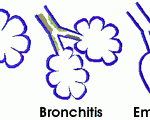At a time, ironically, when most consumers avoid peanut products due to a salmonella scare that affected more than 31 million pounds of peanuts, scientists announced that a new treatment for peanut allergies may be imminent. If validated, the treatment just might provide a margin of safety for the 3.3 million Americans who live in fear of dying from peanut-induced anaphylactic shock. And the most ironic part of the news is that the “breakthrough” treatment sounds an awful lot like homeopathy.
The researchers, out of Duke University, stood by while they gave tiny doses of peanut powder to 33 children who had confirmed peanut allergies. The doses started at well under one thousandth of a peanut, and when the subjects tolerated that amount, they kept receiving larger doses until they had a reaction. Then the children went home with a dose just slightly under their tolerance point, to take daily. At regular intervals for the next several years, these children had their dose increased.
Although four of the kids had to drop out because they couldn’t take the treatment, the others fared well, building up immunity over time. In fact, five children withdrew from the study after two-and-a-half years because they no longer displayed any signs of peanut allergy whatsoever. The hopeful results led study director Dr. Wesley Burks to say, “These studies do give us hope that there will be a treatment in the next two or three years.”
Meanwhile, over in England, researchers had a similar idea. A British study of 18 youngsters started them on a minuscule dose of peanut flour, but after just six months, the allergic subjects could tolerate five peanuts at a time, and immunity appeared to keep building. According to the director of that study, Dr. Andy Clark, “For all our participants, a reaction could lead to life-threatening anaphylactic shock, but now we’ve got them to the point where they can safely eat at least 10 whole peanuts…It’s not a permanent cure, but as long as they go on taking a daily dose they should maintain their tolerance.”
The results of the first study were presented before the American Academy of Asthma and Immunology, and the results of the second study appeared in the prestigious journal, Allergy. It seems that because these studies were conducted by medical professionals tied to respected medical institutions, the homeopathic structure of the prospective cure is not being mentioned — although the treatment sure is being taken more seriously by the press than a comparable alternative approach might be. In fact, an internet search using the terms “peanut allergy and homeopathy” reveals such statements as, “While this treatment of peanut allergy may be vaguely along a homeopathic path, it is conducted by real doctors who know what they are doing,” (don’t you just love it) and “This is NOT homeopathy. This is real science at work, not charlatanism” (spoken by a true charlatan).
Apparently, those commentators don’t subscribe to the “if shoe fits, wear it” doctrine. In any event, the treatment does look promising, though many parents fear trying it out on their kids. An Associated Press article reveals that parents who have witnessed their children undergoing an allergic reaction fear repeating the process, even under the watchful eye of their doc. “I am full of complete admiration for the parents and those children who put themselves through [the study] because I know as a mother, I would be absolutely fearful to try to put Nick through that, just because I’ve seen what happened to him,” said Eva Stilkey of Raymond, New Hampshire.
Other parents said they would jump at the chance to rid their kids of the allergy, even if it meant some nail-biting moments. Right now, though, the treatment isn’t available and this isn’t something parents should try at home, doctors warn. Let’s hope that further testing confirms that the treatment works for those 30,000 allergic people who end in the emergency-room each year because of a reaction to peanuts. And let’s also hope that big medicine doesn’t find a way to extract exorbitant fees from patients for what, charlatan nonsense aside, is in essence not unlike homeopathy.
In the meantime, you might try a more holistic approach for overcoming severe allergies. Does this approach work? See for yourself. Although not specifically tested for peanut allergies, it has been proven on people who have had multiple near death experiences from food induced anaphylactic shock.
:hc











